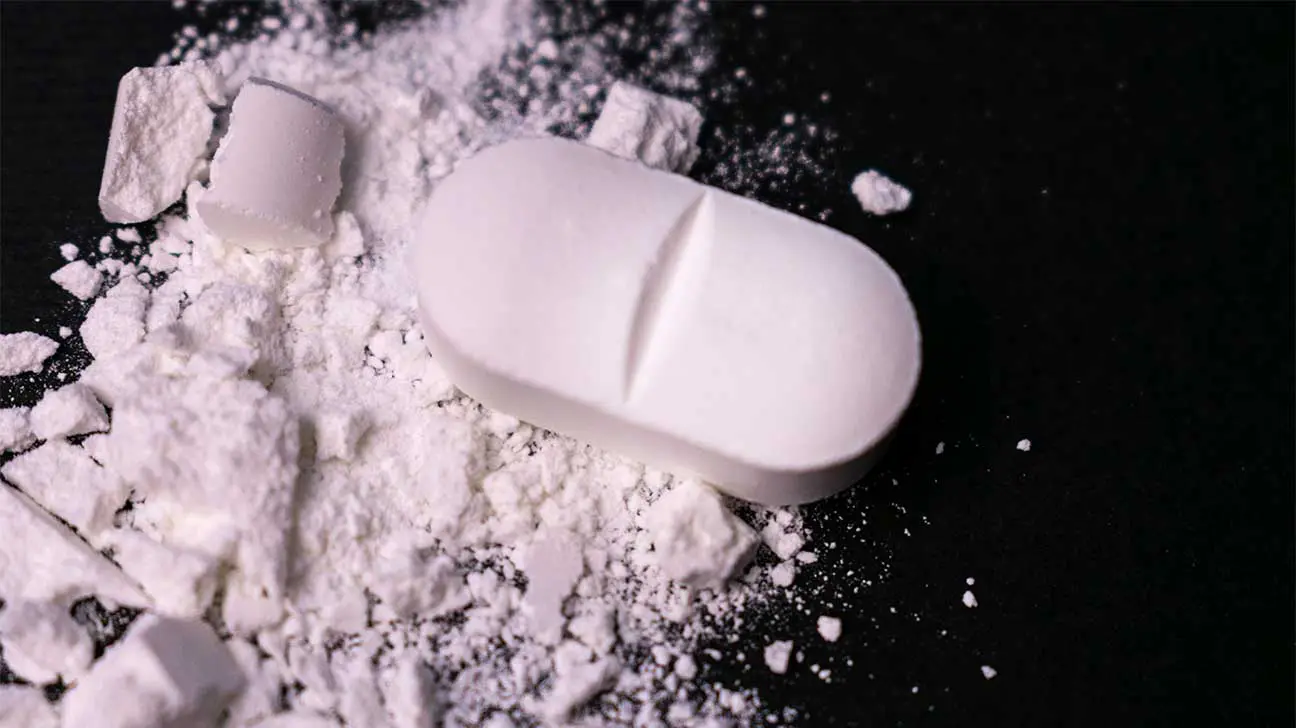
Klonopin (clonazepam) is a prescription sedative that belongs to a class of medications called benzodiazepines.
When this medication is taken as prescribed and under the guidance of a physician, the risks of adverse side effects, physical dependence, and addiction remain low.
When it is snorted (insufflated) or taken in high doses, it is both dangerous and addictive. Snorting Klonopin increases the risks for overdose and adverse side effects.
Reasons Why Snorting Klonopin Is Dangerous
Benzodiazepines like Klonopin, Xanax, and Ativan disrupt activity in the brain and central nervous system.
They produce calming and sedative effects by increasing gamma-aminobutyric acid (GABA) in the brain, a neurotransmitter that works on the central nervous system.
Benzos are used to treat medical conditions such as anxiety and anxiety disorders, panic attacks, seizure disorder, and alcohol withdrawal in the United States.
Klonopin also leads to dopamine release, which is known to be a factor of substance abuse of other drugs, such as other benzodiazepines, opioids (heroin and painkillers), cocaine, and methamphetamine.
Snorting or abusing Klonopin through another method puts the drug into the bloodstream faster than its intended use, which is why it can be a dangerous method of drug abuse.
Side Effects Of Snorting Klonopin
The sedation effects of Klonopin are used to alleviate symptoms of anxiety and panic disorder. Unfortunately, due to these effects and the drug’s addictive qualities, it is also commonly abused.
Insufflation is a common method of drug abuse among people who abuse other drugs such as cocaine and methamphetamines.
People who snort the medication do so because it allows the drug to bypass the drug’s controlled release properties that occur as it passes through the digestive system.
Snorting Klonopin allows the drug to enter directly into the bloodstream through the highly vascularized tissue of the nasal and sinus cavities.
Snorting Klonopin can lead to serious side effects, as the drug reaches peak blood concentrations faster than when taken orally.
Abuse of benzodiazepine medications may cause physical dependence, addiction, drowsiness, sedation, fatal overdose, and death.
Short-Term Effects
Individuals who abuse Klonopin may experience a variety of short-term effects.
Snorting Klonopin may cause the following short-term side effects:
- abdominal distress
- dizziness
- anxiety
- agitation
- allergic reaction
- irritability
- depression
- changes in appetite
- confusion
- memory impairment
- vision impairment
- diarrhea
- palpitations
- dry mouth
- fatigue
- headache
- slurred speech
- insomnia
- nervousness
- tremors
Long-Term Effects
Long-term abuse of Klonopin may make it difficult for a person to decrease their dose or stop taking the drug, as they develop chemical tolerance and dependency.
Further, Klonopin abuse destabilizes areas of the brain that control stress, anxiety, and irritability.
With continued abuse, the person will become increasingly reliant on the sedative and calming effects of the medication in order to regulate stress.
Snorting Klonopin and using the medication habitually may lead to chemical dependence, addiction, and withdrawal symptoms.
Klonopin Withdrawal
Klonopin withdrawal symptoms occur when an individual who has become chemically dependent on the drug stops taking the medication. These effects occur as the brain is forced to adapt to chemical changes in the body.
Characteristic withdrawal symptoms may occur after abruptly stopping the medication and cause severe anxiety, insomnia, and seizures.
Symptoms of Klonopin withdrawal range from mild to severe, and include:
- nausea and vomiting
- short-term memory loss
- intense drug cravings
- tremors
- sweating
- paranoia
- anxiety
- fear
- irritability
- aggression
- hallucinations
- seizures
Klonopin withdrawal symptoms may be life-threatening. It is highly recommended that anyone with a physical dependence on or addiction to Klonopin consult with a medical professional before stopping the medication.
Overdose Risks
Klonopin stays in the system longer than other benzodiazepine medications. People who abuse this medication recreationally often mix the drug with alcohol or other opioid medications.
The risk of overdose is substantially higher when Klonopin is combined with other benzodiazepine drugs and CNS depressants, such as alcohol.
Nearly 30% of deaths caused by pharmaceutical medications are caused by misuse and overdose of benzodiazepines. In the majority of these cases, overdose was unintentional.
Symptoms of Klonopin overdose include:
- extreme drowsiness
- confusion
- slurred speech
- feeling restless
- muscle weakness
- vertigo or loss of coordination
- light-headedness
- slow heartbeats
- weak or shallow breathing
- coma
People who experience overdose symptoms when taking Klonopin should seek immediate emergency medical assistance.
Treatment Options For Klonopin Addiction
Inpatient and outpatient addiction treatment centers provide supportive medical services as an addicted individual begins detox.
Substance abuse treatment may include the following options:
- inpatient treatment — patient receives medical support and therapy, during detoxification and recovery. After completing treatment, the patient transitions to life outside the treatment center.
- outpatient treatment — medical support, advice, and supportive therapies are scheduled daily or may be arranged to meet the patient’s personal needs.
If you or a loved one have a Klonopin addiction, please connect with our treatment center through our helpline today.
Addiction Resource aims to provide only the most current, accurate information in regards to addiction and addiction treatment, which means we only reference the most credible sources available.
These include peer-reviewed journals, government entities and academic institutions, and leaders in addiction healthcare and advocacy. Learn more about how we safeguard our content by viewing our editorial policy.
- National Center for Biotechnology Information (NCBI) — Challenges of the pharmacological management of benzodiazepine withdrawal, dependence, and discontinuation
https://www.ncbi.nlm.nih.gov/pmc/articles/PMC5896864/ - National Alliance on Mental Illness (NAMI) — Clonazepam (Klonopin)
https://www.nami.org/About-Mental-Illness/Treatments/Mental-Health-Medications/Types-of-Medication/Clonazepam-(Klonopin) - National Center for Biotechnology Information (NCBI) — Prescription Sedative Misuse and Abuse
https://www.ncbi.nlm.nih.gov/pmc/articles/PMC4553644/


